2024 Spring Meeting
In This Section
To read an article, please click on the down arrow to the right of the article title.
 President’s Message – Ann M. Mueting – Spring Meeting 2024
President’s Message – Ann M. Mueting – Spring Meeting 2024
Ann M. Mueting
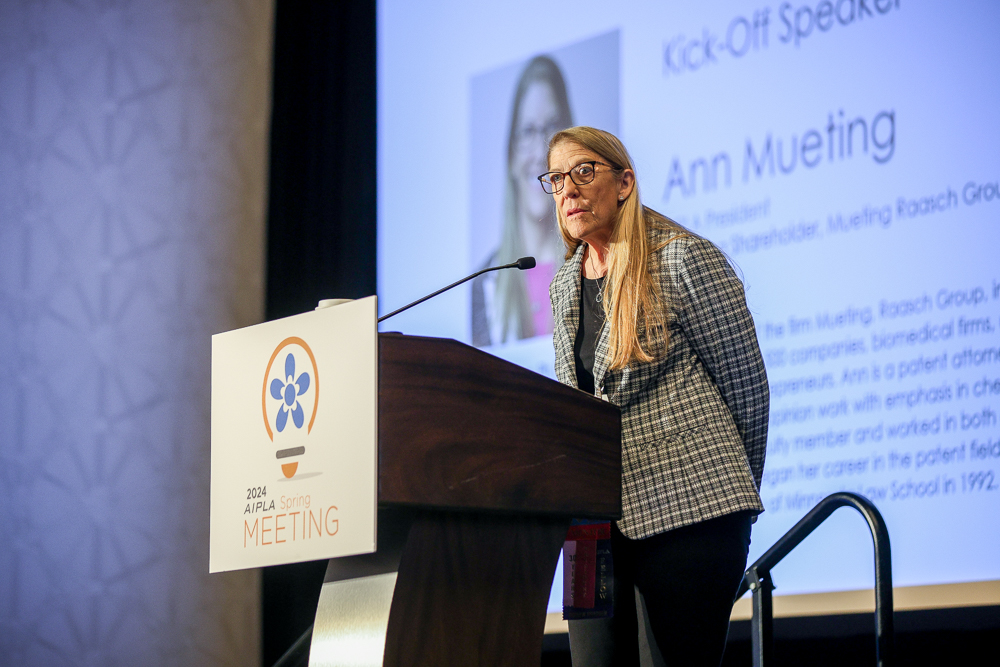
I am excited to share with you the incredible work we’ve accomplished since we last came together in October 2023!
We have been busy advocating for and supporting our community in numerous ways. We filed seven formal comments to the USPTO on topics such as DOCX, Patent Center, Standards Policy, PTAB Rules, GRTK, Bringing Innovation to the Marketplace, and AI-Assisted Inventions. Additionally, we submitted comments to the U.S. Copyright Office on issues including AI, Two-Dimensional Artwork, and Group Registrations, as well as comments to HHS on the WHO Pandemic Treaty, NIST on March-In Rights, and the FTC on Right-to-Repair. On Capitol Hill, we supported the PREVAIL Act (Promoting and Respecting Economically Vital American Innovation Leadership), PERA (the Patent Eligibility Restoration Act), and the IDEA Act (Inventor Diversity for Economic Advancement Act) through letters to the Senate. We also submitted amicus briefs in five cases: TriZetto v. Syntel, In re Cellect, Warner Chappell v. Sherman Nealy, Google v. Sonos, RegenXBio v. Sarepta Therapeutics. Additionally, we met with international delegations from Singapore and China and participated in meetings with USPTO IP Attachés.
We sponsored six CLE webinars covering topics such as Copyright and AI, LKQ v. GM on Design Patent Obviousness, strategies to get USPTO Examiners to pay attention to your case, Litigation Funding, and a comparison of software claims drafting between the USPTO and the EPO. For in-person events, we hosted the Advanced Chemical Patent Practice Institute, Design Day, and a World IP Day event on Capitol Hill featuring remarks from USPTO Director Vidal, Register of Copyrights Perlmutter, Senator Coons, and Representatives Issa and Johnson. Recently, we wrapped up the Women Entrepreneur Mentoring Program, and earlier this year, we hosted the Trade Secret Summit, the Patent Prosecution Bootcamp, the DEIA Colloquium, and the Corporate Practice Institute.
On the publications front, we have begun the new volume of the Quarterly Journal for 2024, released new issues of INNOVATE, and posted the latest edition of the Model Patent Jury Instructions. It’s truly amazing how much we can accomplish when we come together as a community
 A Panel of Judges Presents: Things I Wish I Knew When I Was an Intellectual Property Practitioner
A Panel of Judges Presents: Things I Wish I Knew When I Was an Intellectual Property Practitioner
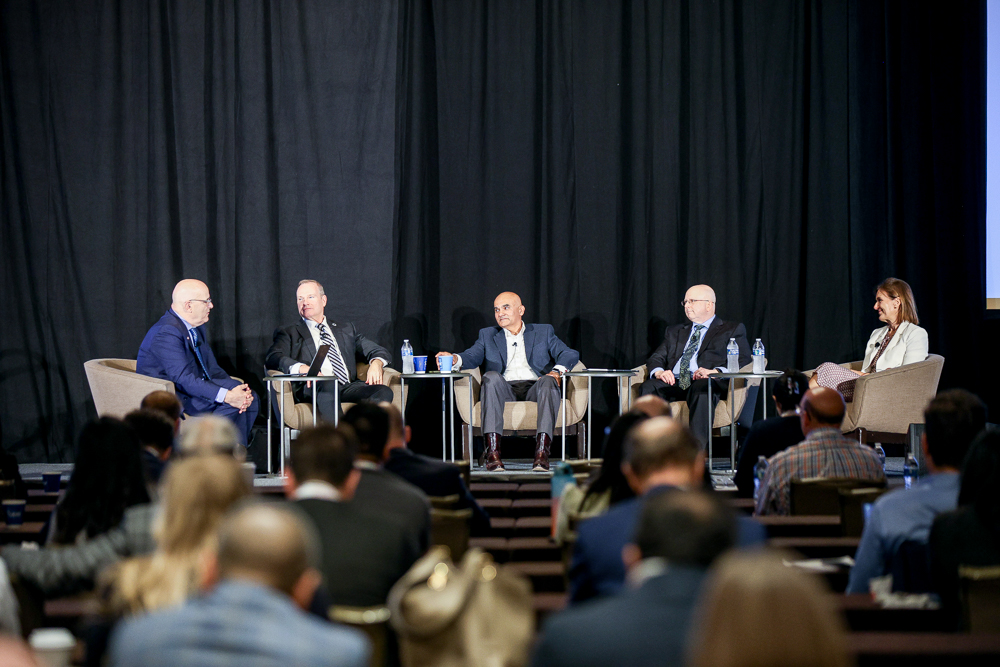
The Spring Meeting’s Opening Plenary, moderated by Joe Re of Knobbe Martens, featured a panel of four judges who previously practiced IP law. The panel included Judge John W. Holcomb, U.S. District Judge of the U.S. District Court for the Central District of California; Judge Shashi H. Kewalramani, U.S. Magistrate Judge of the U.S. District Court for the Central District of California; Judge Scott R. Boalick, Chief Judge for the PTAB; and Judge Susan Hightower, U.S. Magistrate Judge of the District Court for the Western District of Texas.
During the discussion, Re asked whether having an IP background is beneficial for judges. Judge Holcomb responded that the dynamic nature of IP law helps as judges are generalists who continuously learn new areas of law. He emphasized that while most district judges come from a criminal background, they often could benefit from a broad legal background, making intellectual curiosity and eagerness to learn essential traits in a judge. Judge Hightower agreed, noting that she gets excited when an IP case comes across her docket, while Judge Kewalramani added that an IP background teaches one to be prepared for the unexpected. Judge Boalick highlighted the importance of firm support for younger lawyers, sharing how his own firm allowed him to explore IP work early in his career.
Re then asked about discovery, with Judge Hightower encouraging consenting to magistrate judges, emphasizing that the discovery process is primarily the parties' responsibility before involving the court. Judge Kewalramani stressed the importance of being reasonable and measured during the discovery process. He advised that younger lawyers should clearly state their discovery needs to increase the likelihood of favorable rulings. Judge Holcomb recounted a personal experience with a child custody dispute, underscoring the value of working together to settle cases for better outcomes.
Re then asked if the judges dig deeper into patent cases given their backgrounds. Judge Holcomb acknowledged a natural tendency to delve deeper into familiar cases, while Judge Hightower admitted to having more fun with them.
When asked about the best advice for lawyers, Judge Holcomb stressed that “credibility is king,” Judge Kewalramani advocated for kindness, Judge Boalick emphasized honesty and transparency with the court, and Judge Hightower noted that “your reputation is all you’ve got.
 Exploring the Texas Regional Office: Insights into USPTO Operations and Outreach
Exploring the Texas Regional Office: Insights into USPTO Operations and Outreach
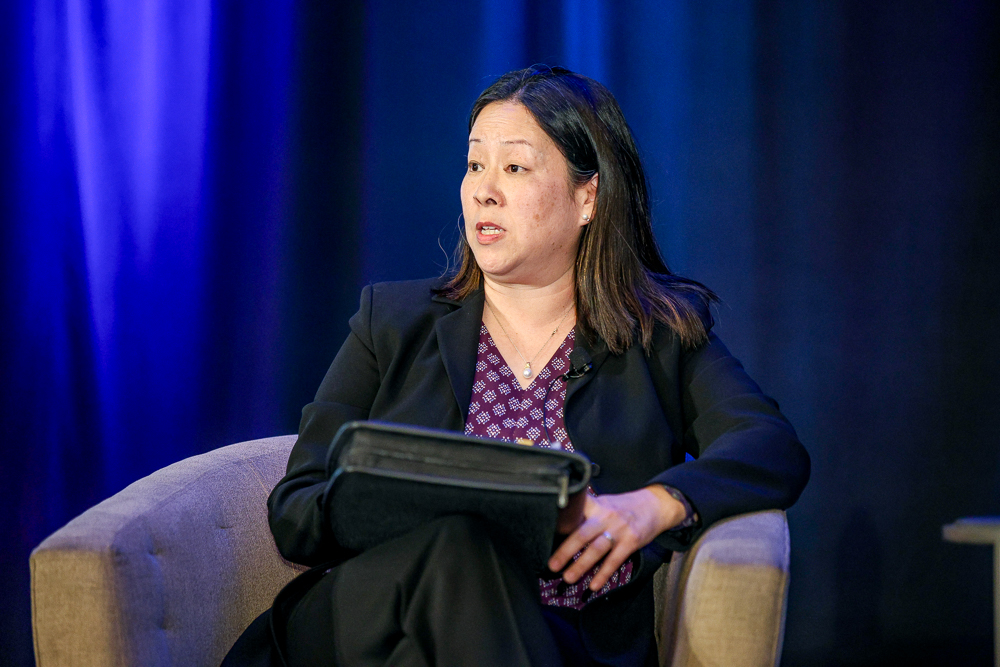
Hope Shimabuku, Director of the USPTO's Texas Regional Office, discussed several key points regarding the outreach and operations of the USPTO. She emphasized the importance of being a vocal resource to stakeholders, providing IP education nationwide, and holding outreach events. Regional offices play a significant role in outreach for both new and longtime filers, offering updates and feedback on USPTO policies.
Shimabuku highlighted that regional offices house patent examiners and PTAB judges, with the Texas Office having the highest concentration of PTAB judges outside of the USPTO headquarters. These offices serve as starting points for USPTO employees, with regional directors acting as the face of the USPTO in their regions. Their job is to meet stakeholders, gather feedback on Requests for Comment, and pass it on to headquarters.
She noted that Texas has many innovation hubs and IP practitioners, with efforts also aimed at reaching smaller, growing hubs. Shimabuku discussed the USPTO’s work on AI and inventorship, including the use of AI in prior art searches and ongoing examiner training. She encouraged stakeholders to reach out with ideas and feedback, reinforcing the USPTO's commitment to outreach and collaboration
 Insights from The Honorable Judge Alan D. Albright
Insights from The Honorable Judge Alan D. Albright

During Friday’s Keynote Luncheon, the Honorable Judge Alan D. Albright, U.S. District Judge of the U.S. District Court for the Western District of Texas, shared his valuable insights from the bench. Albright noted that he almost became a patent prosecutor and therefore has familiarity with the process. He emphasized the importance of empathy for patent practitioners, recognizing the constraints they face, such as tight budgets and the challenge of perfect claim drafting. He highlighted the critical role of grammar, noting that poor grammar often leads to findings of indefiniteness, a common issue among less experienced drafters. Clarity in grammar and terminology is essential, noting that “ambiguity doesn’t necessarily favor the patentee.”
Albright also shared his thoughts on effective witnesses in trials, emphasizing the challenges faced when lawyers navigate already complex patent cases. He advised finding witnesses who are knowledgeable and can clearly explain the patented claim to the judge and jury. He warned against witnesses who become hostile during cross-examination, as this can undermine their credibility. Additionally, Albright noted the importance of young lawyers, especially young female trial lawyers, who tend to resonate well with juries.
Reflecting on his experience, Albright offered advice for being an effective trial lawyer. He stressed the importance of engaging with the jury, being interactive, and avoiding reading prepared statements, noting that you should “make juries like you the best.” He recommended rehearsing with someone who provides critical feedback to refine opening and closing statements, and to “think is what you're asking witnesses worthwhile for the jurors to be missing work for.
 Navigating the Future: AI and Ethics in the Legal Profession
Navigating the Future: AI and Ethics in the Legal Profession
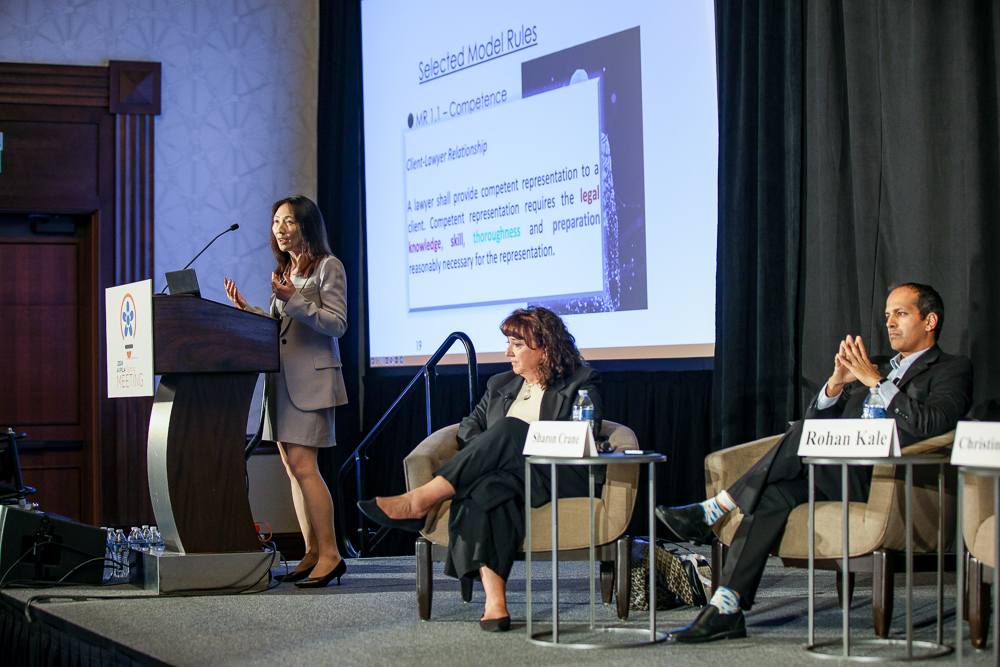
The Artificial Intelligence and Ethics plenary, moderated by Rohan Kale of Elastic, featured two speakers, Christina Huang from Faegre Drinker and Sharon Crane from Haynes Boone, who shared their insights on the evolving role of AI in the legal profession and its ethical implications.
Crane traced the history of AI back to its early conceptualizations in the 1950s and 60s, mentioning Alan Turing's pioneering work and the development of early chatbots and autonomous programs in the 1980s. Crane shared a personal anecdote about a recent interaction with her car's AI system, highlighting the need for caution when using AI, especially in video and image generation. She stressed that while AI can augment human intelligence and improve efficiency, it is crucial to always verify its accuracy. Crane also noted that clients might increasingly demand the use of AI for cost and efficiency benefits, and legal professionals must be transparent about the risks. She mentioned that AI's use in courts is becoming more common, with regulations emerging to guide its application, and highlighted ongoing legal cases involving AI and copyright issues.
Huang noted that, “AI has profound impacts in our lives, especially as attorneys.” She pointed out that it has the potential to change core functions within the legal field but emphasized the importance of diligence in checking AI's work for accuracy. Huang raised the critical question of inventorship in AI-generated innovations and underscored the need for legal professionals to use AI competently and responsibly. She predicted that in the next five years, AI will become more ubiquitous in the legal profession, transforming how attorneys work and interact with clients
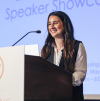 Committee Programming Spotlight
Committee Programming Spotlight
Over 20 committees held in-person business meetings, special programs, and receptions at the Spring Meeting. See some highlights below!
Women in IP Law Committee Breakfast
The AIPLA Women in IP Breakfast was a transformative event featuring keynote speaker Tara Furiani, whose enlightening talk, "Thriving Under Pressure: Unconventional Strategies for the Modern Legal Professional," left attendees inspired and empowered. Furiani introduced her "S.A.I.L" framework, emphasizing the essential components of Self-care, Accountability, Introspection, and Learning. In today's dynamic world of intellectual property law, her message resonated deeply, highlighting the crucial importance of mental clarity and resilient leadership in navigating the complexities of the field. With her timely insights, Furiani provided invaluable guidance for thriving amidst the ever-evolving challenges of intellectual property law (and beyond!), leaving a lasting impact on all who attended.
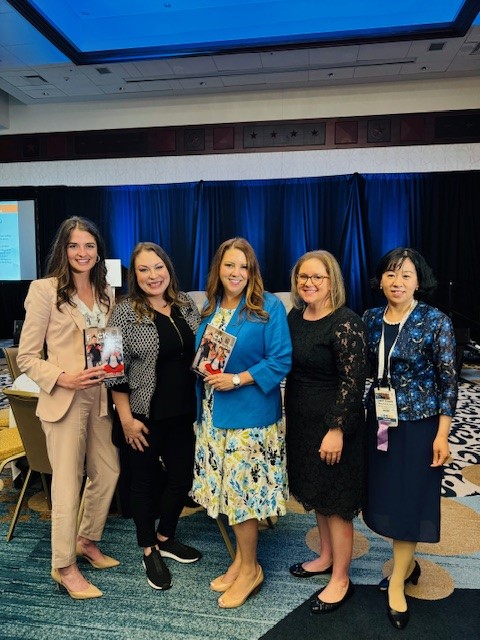
For those interested in participating in a future Speaker Showcase or seeking additional information, please contact Nicole Wanty (Nicole.wanty@klarquist.com) or Vincent Smolcyznski (vsmolczynski@seyfarth.com).
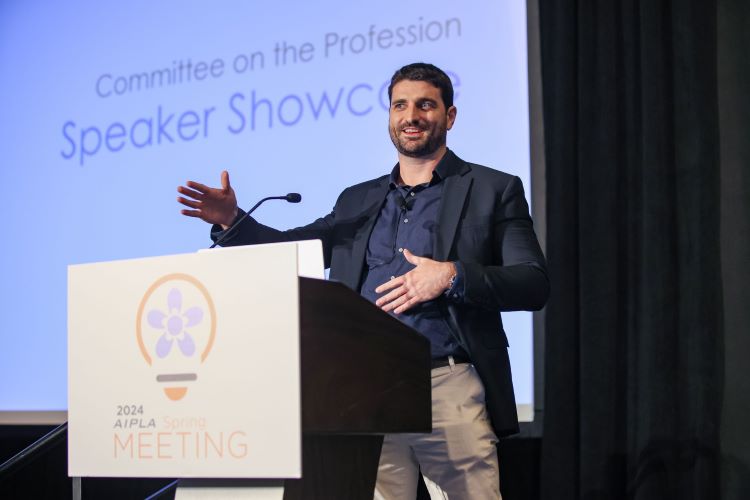
If you'd like to see your committee's activities featured in the next eBulletin, please be sure to send your write up to us at AIPLA.
 SM24 Photos
SM24 Photos
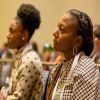 Upcoming Events
Upcoming Events
 Upcoming Webinars
Upcoming Webinars
 New Members
New Members
Upcoming Events
-
.png?sfvrsn=9aa26827_1) 2026 AIPLA Virtual Corporate Practice Institute
2026 AIPLA Virtual Corporate Practice Institute
January 13 to 20, 2026 | Up to 360 Minutes of CLE
The Corporate Practice Institute is not a bootcamp. This program provides in-depth insight for in-house corporate counsel and agents to learn about wide ranging legal issues affecting their practice from experienced practitioners. It is designed for experienced in-house attorneys and new in-house attorneys learning to manage new corporate environments and challenges not taught in law schools or private practice. The Institute also helps private practice attorneys, especially associates, prepare for potential in-house career moves. The program also provides valuable networking opportunities to connect with each other and learn from each other's experiences. This online, CLE-program spans two half-days, from Noon – 5:00 pm Eastern and includes 3 one-hour education sessions and a networking session each day. -
 AIPLA CLE Webinar: Regulation, Risk & Resilience: The Nexus Between Professional Liability, Duty of Competence & Practitioner Well-Being
AIPLA CLE Webinar: Regulation, Risk & Resilience: The Nexus Between Professional Liability, Duty of Competence & Practitioner Well-Being
February 10, 2026 12:30 PM to 2:00 PM | Eligible for up to 90 Mins CLE
Mental health issues and substance use disorders can affect any practitioner, in any setting, and at any time. Left untreated, they can destroy careers and lives. This program will discuss where the legal profession currently stands in relation to the substantial challenges presented by untreated mental health issues and substance use disorders and examine the nexus between ethical competence under the USPTO Rules of Professional Conduct and practitioner well-being. This program will educate attendees on how to recognize the signs of an impaired attorney, how to approach the colleague and begin a conversation, and discuss the possible disciplinary and professional liability implications of an impaired practitioner’s conduct. In addition, the speakers will present best practices/effective risk management strategies, preventative measures, and proposed policy and well-being initiatives, that practitioners in any practice setting may implement to protect clients, themselves, and other firm members as well as save careers. -
.png?sfvrsn=fb5905da_1) 2026 IP Transactions Bootcamp
2026 IP Transactions Bootcamp
February 12, 2026
This in-person bootcamp is designed to provide practical insights and strategies for professionals working in intellectual property transactions. The day features a comprehensive agenda including: Panels and CLE Sessions: Learn about Working with Tech Transfer Offices, Strategies for successful collaborations between nonprofits and industry, and Protecting and monetizing an AI asset. Drafting and Negotiating Tips: Get practical advice on drafting and negotiating strategic collaboration and license agreements. Hands-on Workshop: Participate in a Mock licensing negotiation to put your skills to the test. Networking: Conclude the day with a dedicated Networking reception. -
-(1).png?sfvrsn=7a1054_1) 2026 Trade Secret Summit
2026 Trade Secret Summit
March 26 to 27, 2026
The AIPLA Trade Secret Summit is the leading trade secret conference in the nation, with speakers from across the spectrum of private practitioners, in-house counsel, government, and academia, as well as fantastic networking opportunities. CLE credits will be available. -
2025 Women in IP Global Networking Event
April 16, 2026

